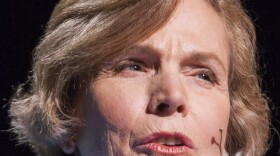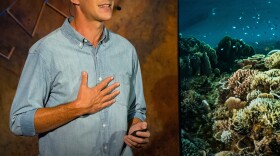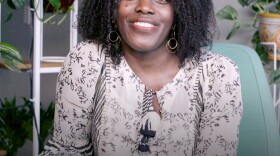
TED Radio Hour
Saturdays at 7 am, Sundays at 2 pm
TED Radio Hour is a journey through fascinating ideas, astonishing inventions, and new ways to think and create. The show is based on riveting TEDTalks from the world's most remarkable minds.
-
Legendary oceanographer Sylvia Earle has been exploring and working to protect our oceans for more than half a century. Her message has stayed the same: we're taking our oceans for granted.
-
In 1998, Alasdair Harris went to Madagascar to research coral reefs. He's worked there ever since. He explains the true meaning of conservation he learned from the island's Indigenous communities.
-
For marine biologist Ayana Elizabeth Johnson, not knowing where our seafood comes from isn't just a mystery—it's a problem. She says we should reconsider what we eat and how we take it from the sea.
-
Whales are more than just beautiful creatures—they play a vital role in the ocean's ecosystem. Marine biologist Asha de Vos explains why protecting whales is crucial for protecting the entire sea.
-
Cone snails are deadly sea predators; their venom can kill fish and even humans. But chemical biologist Mandë Holford says that powerful venom can actually be used for good — to treat human diseases.
-
Marine biologist Ayana Elizabeth Johnson is obsessed with one research subject — the parrot fish. She says there is urgent work to be done to save them and their home, the coral reefs.
-
Marine biologist Marah Hardt is fascinated with the mating habits of marine life. If we want to save the oceans, she says we have to understand the weird and whimsical sex that helps populate it.
-
Catherine Mohr shares the story of a scuba diving trip gone wrong, where getting stabbed by a sea urchin transformed her relationship with the ocean... and ultimately led her to the love of her life.
-
What does it mean to be healthy and to care for our bodies? This hour, physician and writer Jen Gunter empowers us to cut through false medical claims and make informed decisions about our health.
-
How can art be a tool to better understand ourselves and the world around us? Poet Lee Mokobe shares what it was like to grow up trans in South Africa, and how language can be a tool for change.
You make NHPR possible.
NHPR is nonprofit and independent. We rely on readers like you to support the local, national, and international coverage on this website. Your support makes this news available to everyone.
Give today. A monthly donation of $5 makes a real difference.











